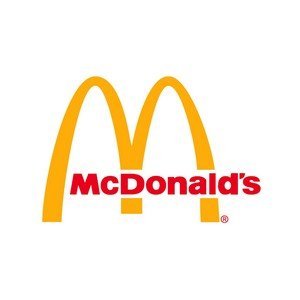
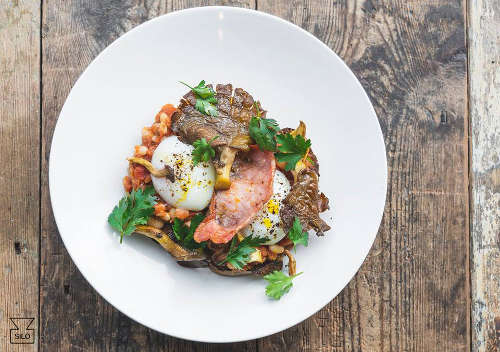 Having tested the SILO concept with the artist, Joost Bakker, in an ephemeral restaurant in Melbourne, the chef, Douglas McMaster has just launched his new restaurant/coffee house/bakery in Brighton, UK. This English chef has decided to take cooking back to the pre-industrial era, whilst reducing waste production as much as possible. For this, the SILO organisation is designed from start to finish "with the bin in mind", as the restaurant site notes. To avoid generating waste, several levers are actioned.
Having tested the SILO concept with the artist, Joost Bakker, in an ephemeral restaurant in Melbourne, the chef, Douglas McMaster has just launched his new restaurant/coffee house/bakery in Brighton, UK. This English chef has decided to take cooking back to the pre-industrial era, whilst reducing waste production as much as possible. For this, the SILO organisation is designed from start to finish "with the bin in mind", as the restaurant site notes. To avoid generating waste, several levers are actioned.
To reduce CO2 emissions generated during goods transportation, the SILO team cultivates some of the products used themselves, in particular aromatic herbs, mushrooms and edible wild plants. Some basic ingredients are also made on-site. The team mills the flour, makes oat flakes, marinated pickles, make almond milk and brews vinegar. It also manages milk fermentation to make cream and yoghurt, butter, cheese, cuts, smokes and cures meats, as well as creates chocolate bars from cocoa beans.
It is all then cooked and used to make anything from bread, pastries and cakes to dishes served on the menu. Douglas McMaster also wanted to update certain culinary traditions and customs by choosing to season his dishes with seaweed or by only using full-fat milk.
Produce that cannot be produced on-site is directly purchased from local producers, conscious of the ecological impact of their production. To reduce transportation and avoid food waste, the English chef buys a whole animal from his supplier, and groups his purchases. In addition, SILO favours the use of long-term reusable recipients for transporting goods and also within their walls. From plates to glasses and furniture, everything is chosen to minimise the ecological impact and waste.
More globally, all organic waste is reduced to compost, which is then put back onto the cultivated fields. The building's water, a major ecological factor, is filtered by reverse osmosis, a system that filters it. As for the customers, they won't have to wait to find the bill on the table at the end of their diner, it is sent by email.
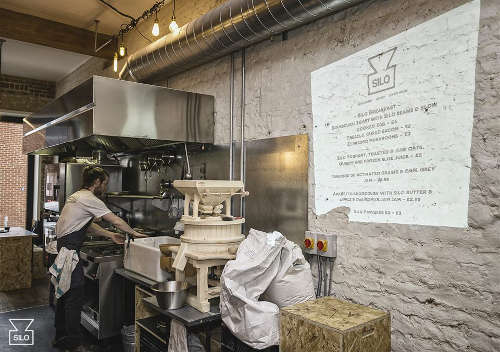
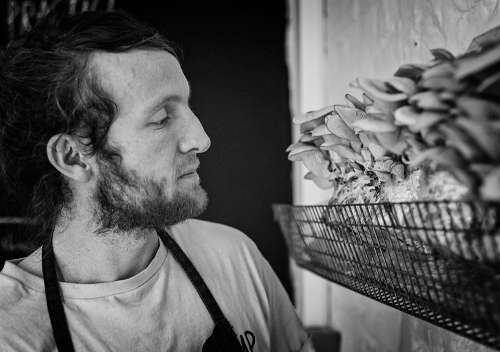
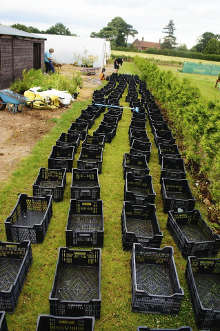
* Photos from the SILO Facebook page: https://www.facebook.com/silobrighton
News in the same category
The Israelian Company, Consumer Physics, has just launched a financing campaign for its "SCiO" project. This small spectrometer lets consumers scan different products and detect their molecular composition.
You can share a Coca-Cola with your family. But customising your can with the words "gay" or "lesbian" is forbidden by the American giant, and produces an error message on the dedicated "Share a Coke" website.
As McDonalds opens its first take-away only outlet with new trading name and reduced menu, fast food just got faster, on London’s Fleet Street.
Tested by the Swiss Post Office during 2013, the "SMS Stamp" lets you pay postage on letters using a mobile telephone. By sending an SMS to a dedicated number, the client receives a code to indicate on the envelope.



